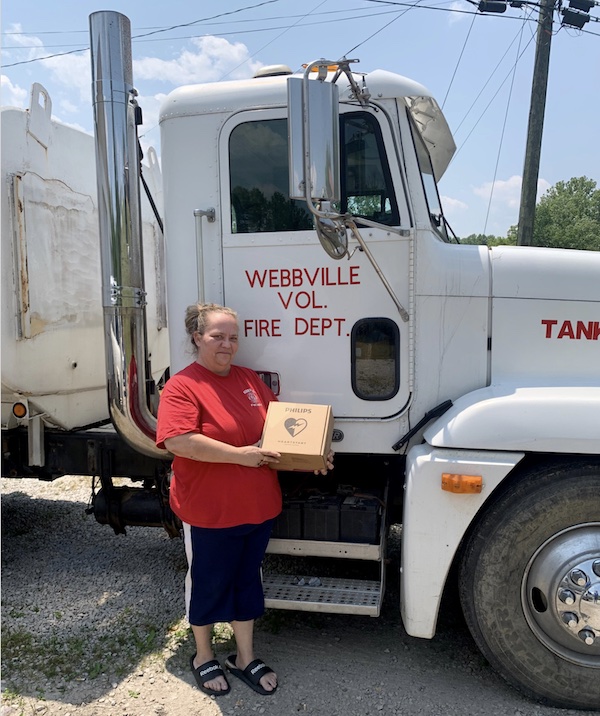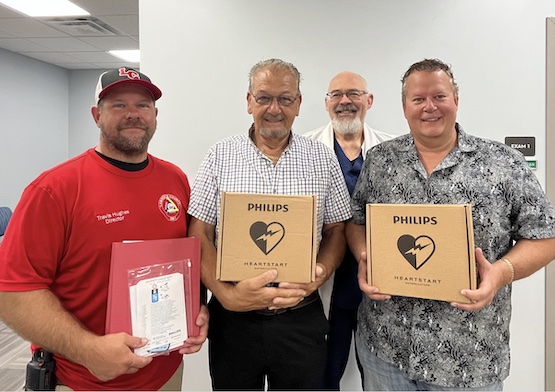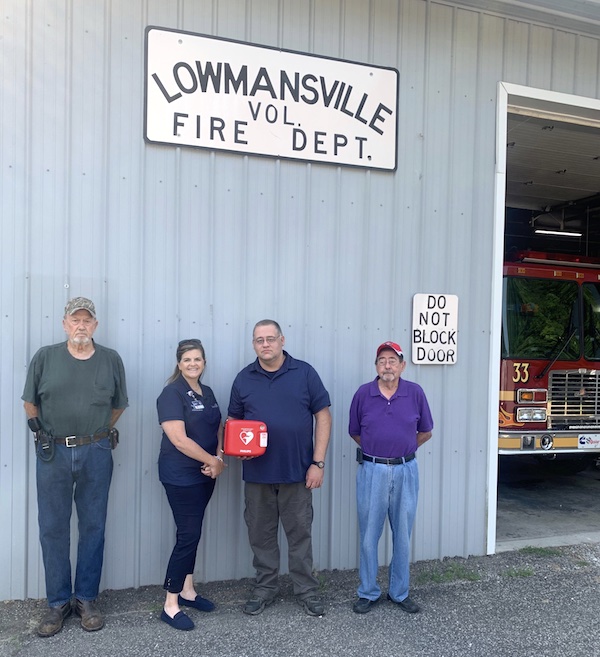
Ashland, Ky. – King’s Daughters Health Foundation collaborates with King’s Daughters Auxiliary to award 23 AEDs to community organizations
Helping people stay healthy and ensuring they have access to services during a medical emergency is an important role of any hospital. The King’s Daughters Health Foundation and Auxiliary are very pleased to announce they are donating 23 automated external defibrillators (AEDs) to first responders and community organizations in eastern Kentucky and southern Ohio.
AEDs are medical devices that can deliver an electrical shock to an individual suffering from sudden cardiac arrest (SCA), a condition that affects more than 350,000 Americans each year. Only about 10 percent of people who experience a cardiac arrest outside of a hospital setting survive.
This is the fourth year for the AED donation program, which is funded through the sale of special heart month T-shirts to King’s Daughters team members and the community. Over 100 AEDs have been donated since 2020.
This year’s recipients include:
Ashland Area YMCA
Boyd County 911
Boyd County Schools Agriculture Department
Decatur Township Volunteer Fire Dept.
East Fork Fire Dept.
Elliott County Emergency Management
Greenup County Detention Center
Helping Hands of Greenup County
Highlands Museum & Discovery Center
Hillcrest Bruce Mission
Ironton Catholic Community
Johnson County Senior Citizen Center
Lowmansville Volunteer Fire Dept.
Lawrence County KY Fiscal Court
Lawrence County Ohio Domestic Shelter
Lawrence County Search and Rescue
Raceland Police Department
Rock Hill Youth Sports
Rose Hill Schools
South Point Volunteer Fire Dept.
United Ashland Ministry/Unity Square
Webbville Volunteer Fire Dept.

The kits, which include the defibrillator, hard shell case and pediatric key that allows it to be safely utilized on an infant or child, were delivered to the recipient organizations over the past several weeks.
The King’s Daughters Health Foundation and the King’s Daughters Auxiliary are committed to supporting UK King’s Daughters in meeting the special healthcare needs of patients and their families as well as providing programs and services to families and the communities in which they live.
The AEDs were awarded based on community need, with an emphasis on first responders and location.














![Foothills-Bundle] Foothills-Bundle](https://thelevisalazer.com/wp-content/uploads/2020/05/Foothills-Bundle-422x74.jpg)






